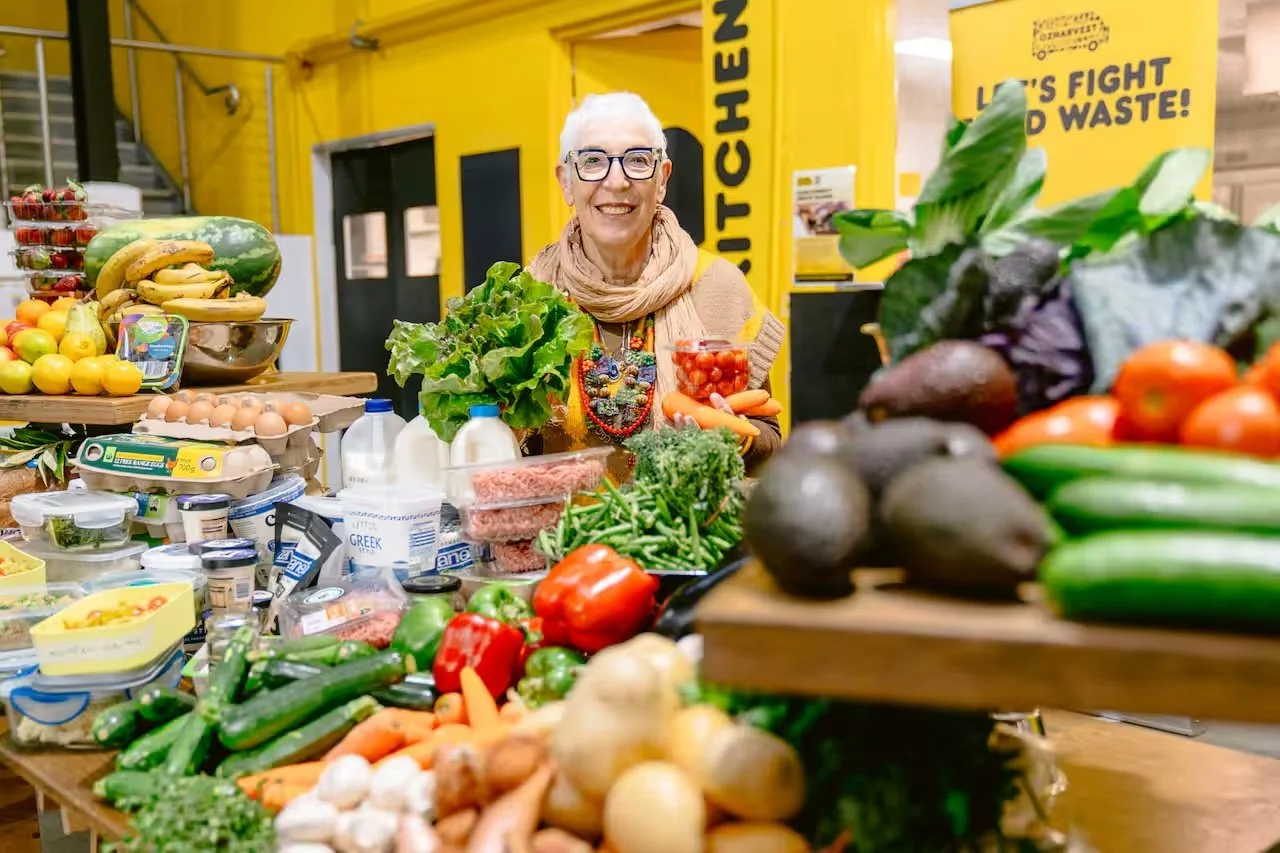How much food are we actually wasting
- and what can we do about it?
We've all done it: bought groceries with the best intentions, only to find ourselves throwing away wilted ingredients long forgotten in the back of our fridges. Recent research by OzHarvest, Australia's leading food rescue organisation, reveals that households with under-35s waste approximately $1,500 worth, or 113kg, of food each year.
For young Australians already struggling with rising living costs, it's money we can't afford to lose. When OzHarvest visualised what 113 kilos actually looks like, the results were eye-opening - and across Australia, this number climbs to 7.6 million tonnes, costing our economy over $36 billion annually.
This goes beyond just forgotten leftovers. The data shows a real generational shift and it's deeply rooted in a culture of consumerism. We have access to food like never before with numerous food delivery apps and more restaurants and products in-store than we can choose from. That’s why when a friend calls after a long workday or your partner says ‘lets order pizza’, it’s an easy choice to make instead of using up what’s already in the fridge.
Are we wasting more than ever?
"What we're seeing right now is a new demographic that's wasting more food than any other. The older generation (whose grandparents or parents lived through the Great Depression) have a completely different sense of value," explains Ronni Kahn AO, founder of OzHarvest. "The biggest challenge is that people aren't connecting the fact that food going to landfill is a major cause of climate change. This is a demographic that cares deeply about the planet, but they're not planning ahead. They're living impulsively, struggling with the cost of living, and yet still wasting enormous amounts of food."
Food savings app Saveful found that globally, 61% of all food waste happens in our homes, making what we do in our kitchens incredibly powerful for creating change. "When the conversation is about value and opportunity, not guilt, it's easier (and more fun) for people to change everyday habits that can create a big impact," shares Kim McDonnell, founder of Saveful. "Traditional methods of tackling food waste often focus on what happens after food has already been wasted, like composting, redistribution, or recycling. While these are important, they don't address the root of the problem. That's where Saveful comes in."
The environmental price tag
The environmental implications extend far beyond our individual experiences. Every time we toss those browning bananas or pour expired milk down the sink, we're contributing to something much larger. OzHarvest's research reveals that 51% of household food waste ends up in general waste bins rather than compost, heading straight to landfill.
"Organic food in landfill produces methane, which is 28 times worse for the atmosphere than carbon dioxide," Kahn explains. "Every kilogram we can save from landfill prevents one kilogram of carbon dioxide from being emitted. When we say we've saved 15 million kilos of food from landfill annually, that's also 15 million kilos of carbon dioxide that wasn't released into the atmosphere."
Learning from the cultures around us
Interestingly, food waste appears predominantly as a Western phenomenon. Many traditional cultures have been practising low-waste cooking for generations. Take fried rice for example – requiring day-old rice for the perfect texture. Middle Eastern fattoush transforms stale pita bread into a crunchy salad component, and Sri Lankan kottu roti takes leftover roti and turns it into a popular street food. These aren't just clever recipes, they're cultural practices built around the idea that food is too precious to waste.
"Cultures where food plays a central, respected role – Middle Eastern, Mediterranean, Italian, Asian – seem to have a deeper connection to food," Kahn notes. "In Australia, almost everyone has some multicultural background, so it’s a wonderful opportunity to reconnect with our grandparents and learn from their food wisdom."
Small Changes, Big Impact
Organisations encouraging lasting change understand that it happens through education, advocacy and awareness. "We need to keep reinforcing this message consistently - every single person can protect the planet and save money simply by being more mindful, shopping carefully and using up leftovers," says Kahn.
At a time when instant gratification is the norm and everything is available at the touch of a button, it's worth reflecting on the incredible privilege of access to fresh, quality produce and the responsibility that comes with it.
Being mindful about what we buy and how we use it becomes a starting point for change that ripples beyond our own kitchens. Learning how to reduce food waste at home is about rediscovering what food really means: not just fuel for survival, but nourishment and connection. This shift in how we think about consumption might be one of the most valuable things we can pass on to future generations. And it all starts in the humble heart of our homes – the kitchen.
Read my select articles here.


